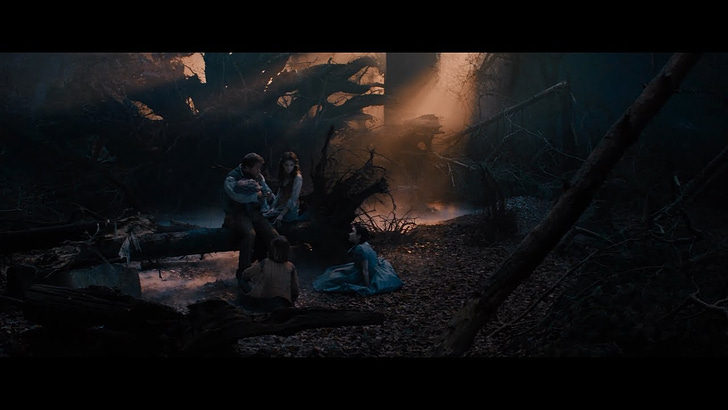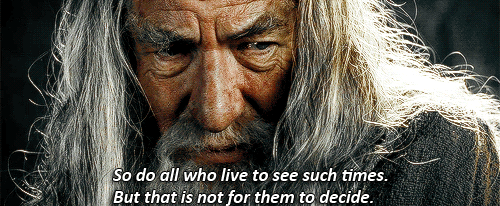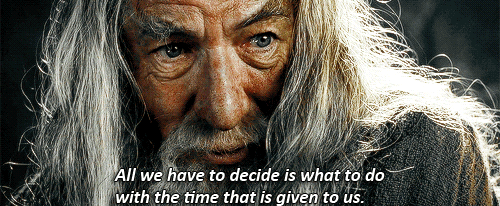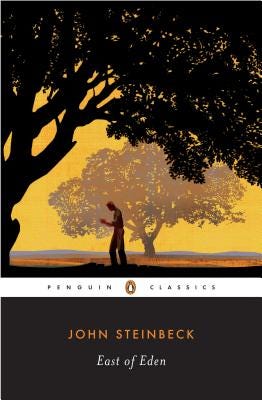My wife and I were able to give my son the childhood he deserved for five weeks. During those five weeks, he was the sweetest, quietest, happiest baby in the world.
Then COVID hit and we lost all of our support — we had a newborn and a toddler in a two bedroom apartment that we weren’t supposed to leave. At this moment, just as work and daycare shut down, my son developed colic1. For months, he did not stop screaming.
This made those first few months of shutdown absolute hell, but looking back on it, I think of my son: good for you, buddy. Screaming and shouting when you don't get what you deserve is a good impulse, and I hope it's something he carries for the rest of his life.
I suspect that the pandemic isn't the only hard thing he’s going to live through. We were brought up to believe that we were at the end of history, that things were stable and, more importantly figured out. Change would be small and incremental from now on: all technological innovations and improvements in the standard of living, rather than the seismic and traumatic changes that have marked literally every other era of history.
Obviously, this was nonsense. Time marches on and brings chaos with it. I brought two children into that chaos. Their existence is not their choice, but my own, and I am the one who must bear responsibility for the fact that these sweet little innocent things will see horrors. A man could drown in that thought.
I would drown in that thought, had I not made a choice when my daughter, my oldest, was born four years ago: the world isn’t total trash. Life is wonderful, in spite of all its pain and suffering. The possibility of horror does not outweigh the possibility of beauty.
In the words of Ernest Hemingway:
“The world is a fine place and worth fighting for.”
I do not think that this stance is naïve or delusional, but rather a choice that every single human has the opportunity to make.
Lessons for a new human
This weekend, my wife and I were finally able to give my son what we called his “welcoming ceremony,” which is effectively the secular equivalent of a baptism2.
In it, I read a letter I wrote to my son about what lessons I’d learned in my first 35 years that I’d like to impart to him, which I will share some of here:
I've learned is that the world is far stranger than anyone can imagine, and that if it seems scary, the best way to stop being scared isn't just to be brave, it's to be curious.
A lot of people spend most of their time being scared of everything. When you're scared, you stop learning and exploring, and this can make you believe some pretty silly things.
People will tell you, for example, that the world is a terrible place. Terrible things happen, yes, but the world is far more beautiful than it is terrible.
People will tell you that hell is other people. People can be cruel, yes, but, as you were deprived of other people from an early age, you may have already guessed that, more often, hell is being alone.
People will tell you humans are bad, close-minded, and stupid. This is sometimes true. But humans are also kind, playful, and smart.
People will tell you that you have to be hard, cruel and selfish to get ahead. This is flat wrong. All of the best people to have ever lived have been soft, kind, and selfless.
People will tell you that the world is a certain way, and that there is nothing you can do to change it. This is the silliest thing one can possibly believe: the world does nothing but change, and you can and will help to shape those changes with your actions and choices.
Humans are programmed with a negativity bias that insists on focusing on the bad instead of the good. It makes good sense evolutionarily — saber-toothed tigers would have found the cavemen who spent all of their time staring in awed wonderment at the stars to be very easy-to-sneak-up-on snacks — but the negativity bias makes us prone to pessimism and despair.
Nor does it help that we live in an age where our predisposition towards negativity has been weaponized by social media’s advertising algorithms. One could quickly become convinced that all is lost in such a world, as many have. I hear, on a near daily basis, from Twitter, coworkers, and family members alike, how terrible the world has become, how things are falling apart, and how we live in “dark times.”
Focusing on curiosity, beauty, and what’s good in life does not come as naturally, so it must be a choice. All of us are born helpless into the world, through no choice of our own, so it seems to me that nothing could be more important than seizing upon this choice in our head, to see the world as wonderful rather than foul, and to make the most of it.
Timshel and Sisyphus
In the years before I had my kids, I agonized about whether it was immoral to bring a kid into a world like this. It didn’t help a ton that the brand of horror I enjoy reading pulls heavily from anti-natalism, the philosophy that’s probably best summed up by Matthew McConaughey’s character from the first season of True Detective.
During this time, my wife introduced me to the book East of Eden by John Steinbeck. and in it, several of the characters discuss the story of Cain and Abel. In that story, at one point, God tells Cain that he must learn to rule over his sin. But the character Lee notices that in another translation, God says he may learn to rule over his sin. Intrigued, the character looks up the original Hebrew word, and finds that it is “timshel.”
“Don’t you see?” he cried. “The American Standard translation orders men to triumph over sin, and you can call sin ignorance. The King James translation makes a promise in ‘Thou shalt,’ meaning that men will surely triumph over sin.
But the Hebrew word, the word timshel — ‘Thou mayest’ — that gives a choice. It might be the most important word in the world. That says the way is open. That throws it right back on a man.
For if ‘Thou mayest’ — it is also true that ‘Thou mayest not.’ Don’t you see?”
The character goes on to say:
“Now, there are many millions in their sects and churches who feel the order, ‘Do thou,’ and throw their weight into obedience. And there are millions more who feel predestination in ‘Thou shalt.’ Nothing they may do can interfere with what will be. But ‘Thou mayest’! Why, that makes a man great, that gives him stature with the gods, for in his weakness and his filth and his murder of his brother he has still the great choice. He can choose his course and fight it through and win.
…It is easy out of laziness, out of weakness, to throw oneself into the lap of deity, saying, ‘I couldn’t help it; the way was set.’ But think of the glory of the choice! That makes a man a man… Confucius tells men how they should live to have good and successful lives. But this – this is a ladder to climb to the stars.” Lee’s eyes shone. “You can never lose that. It cuts the feet from under weakness and cowardliness and laziness.”
…This is not theology. I have no bent toward gods. But I have a new love for that glittering instrument, the human soul. It is a lovely and unique thing in the universe. It is always attacked and never destroyed — because ‘Thou mayest.’”
One of the era’s other great writers, Albert Camus, came to a similar conclusion in his famous philosophical essay, “The Myth of Sisyphus.” The essay cheerily starts with the famous line:
There is but one truly serious philosophical problem, and that is suicide.
The next bit is not much cheerier:
Judging whether life is or is not worth living amounts to answering the fundamental question of philosophy. All the rest— whether or not the world has three dimensions, whether the mind has nine or twelve categories—comes afterwards. These are games; one must first answer. And if it is true, as Nietzsche claims, that a philosopher, to deserve our respect, must preach by example, you can appreciate the importance of that reply, for it will precede the definitive act.
This is a very philosophical way of saying: “If life isn’t worth living, shouldn’t you stop moaning about it and just fucking kill yourself already?”
In his argument in favor of not killing yourself, Camus compares our modern existence to the famous Myth of Sisyphus.
Sisyphus, in Greek myth, was a Corinthian king who managed to twice cheat death, and out of anger, Zeus condemned him to an eternal life in which he pushed a large rock up a hill, only to have it roll back down to the bottom as soon as he reached the top.
Camus' final line of the essay is just as famous as the first:
I leave Sisyphus at the foot of the mountain! One always finds one's burden again. But Sisyphus teaches the higher fidelity that negates the gods and raises rocks. He too concludes that all is well. This universe henceforth without a master seems to him neither sterile nor futile. Each atom of that stone, each mineral flake of that night filled mountain, in itself forms a world. The struggle itself toward the heights is enough to fill a man's heart. One must imagine Sisyphus happy.
When I first read this, I found it pretty depressing — pushing a rock up a hill for eternity sounds, uh, not fun — but now I think that’s because I still put the responsibility for enjoying my existence on the universe, rather than in my own imagination. Waking up every day and going to work could be seen as its own rock-up-a-hill, but I find my work to be both meaningful and interesting most days.
Our initial entry into this world may not be our choice, and what happens to us while we’re in it will never be totally within our control. But that lovely little space between our ears offers us infinite possibilities. The consistent, bleak, “all is lost” approach we seem to have collectively adopted towards our current predicament comes not from the objective facts of the universe — which can be read as bleak! — but from our decision to search for no other reading.
If despair is a choice, so, too, is wonder and joy.
Promises to a new human
As a parent, I think my most important duty is to show my kids this choice and then trust them to make it on their own. This will be hard — telling your children that they can be whoever they like is one thing, but letting go and trusting them to make the right choices is fully another, particularly when the world is this fucking scary.
Mercifully, my son, who is still only two, does not seem like he’ll have troubles with independence and autonomy — he is a jet engine, and the fire in his little heart is apparently endless.
At his welcoming ceremony, I made him a few promises, which I will share here:
I promise to trust you. It did not take your mother and I long to learn that if you wanted to do something, you were going to do it no matter how dangerous it was. I would still prefer you not play with knives, but if you must, I promise we'll teach you how to do it safely, possibly starting with butter knives instead of butcher knives, and we'll trust you to learn from your mistakes.
I promise to not tell you who you are, but to help you discover that for yourself. You don't have to love the same things I love, or be the same as me. I'm not gonna hate it, of course, if you happen to love ghost stories and Queen and Alan Moore comics, but if you decide you like sports and death metal and anime instead, I promise to drive you to games, concerts, and cosplay conventions.
I promise to show you how to be a part of something bigger than yourself. You are not beneath anyone or anything, but you are also not above anyone or anything, and I will help teach you how to not just take responsibility for yourself, but also for your family, community, and world, because all we have is each other.
Finally, I promise to love you as you are. You've got the fire in your heart and the world at your feet.
I will fall short of these promises on occasion, and I told him that if I do, he should hold me accountable. Truth be told, I do not fully trust myself to make the right choices, so I’ll probably end up projecting some of my shit onto him.
But that’s the nice thing about this choice — no matter how many mistakes we make, it’s still ours till our last breath.
Colic, for those who don’t know, is basically a catch-all term they use for babies who won’t stop screaming. It happens to healthy babies, it’s not like, a food or sickness related thing.
My proposed title for the event — “heathen baptism” — was rejected.











